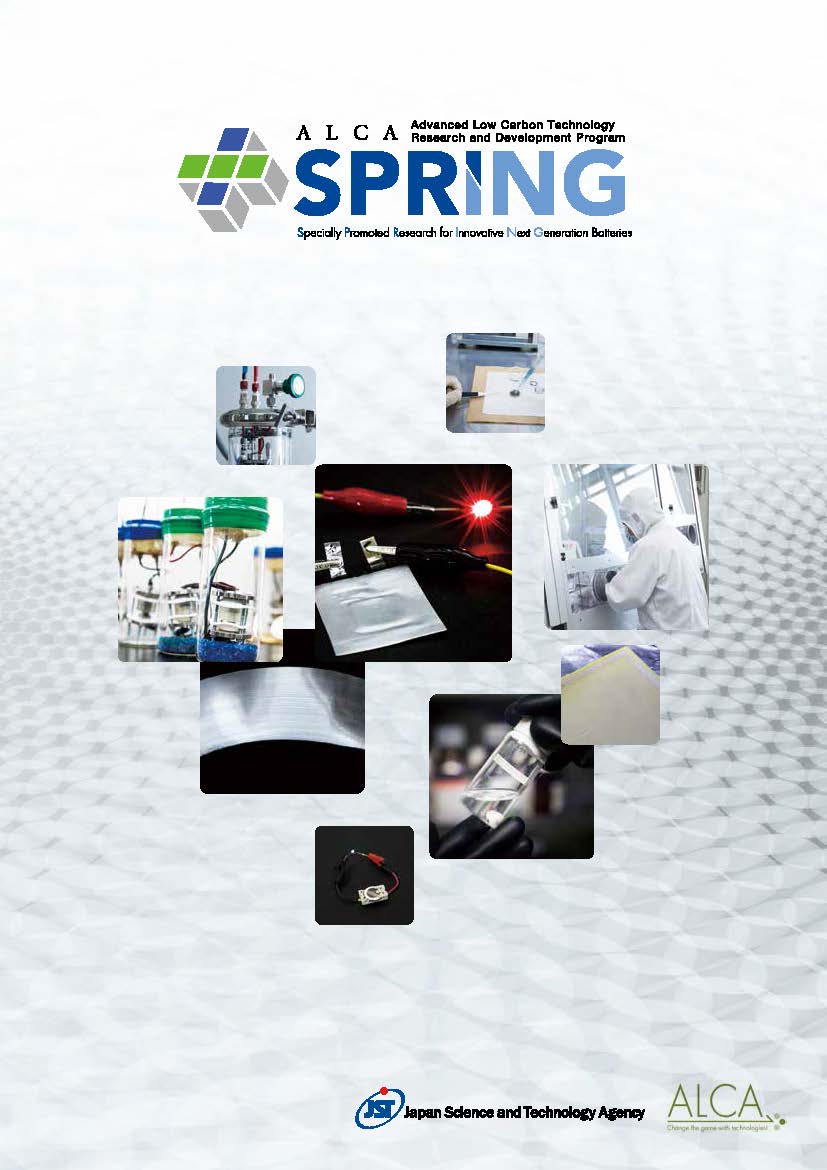
Low cost and high performance next generation secondary batteries are essential in reducing car emissions, which account for around 10% of the total carbon dioxide emissions, and for stabilizing renewable energy supply, and yet, the energy and power densities of currently popular lithium ion batteries are limited, requiring the development of innovative next generation secondary batteries.
This project was launched in July 2013 via the top-down approach of the Ministry of Education, Culture, Sports, Science and Technology(MEXT) and the Ministry of Economy, Trade and Industry(METI) joint panel, which focused on next generation secondary batteries.
Of the candidate next generation secondary batteries, four types of batteries including all-solid-state batteries (sulfide-based/oxide-based), metal-air batteries, other mid-term target batteries, and long-term target batteries were selected to be studied under four teams.Teams were structured so that every team consisted of the Cathode/Anode group, Electrolyte materials group, Evaluation analysis group, and the Battery system group, which studies battery cells, enabling coherent research on batteries.In addition, the Battery Research Platform was established at the National Institute for Materials Science (NIMS), National Institute of Advanced Industrial Science and Technology(AIST), and Waseda University, which allows for the analysis and evaluation of secondary batteries as well as experimental production of cells, assisting the four teams.Overall, the project is massive in scale, consisting of over 40 institutions and over 80 research representatives in total.
Thus, we at ALCA-SPRING promote "top-down team research with predetermined target products and systems that enhance the probability of achieving a low carbon society".
As one of the features of project management at ALCA, we conducted a stage-gate evaluation in the summer of 2015 and restructured our teams from the view point of "materializing next generation secondary batteries", making a fresh start under the new team structure in 2016.Under the new team structure, a cross-sectional "Accelerating and promoting team for practical application" was established for pursuing research on "Special unit for Lithium metal anode research" and "Evaluation, analysis & common material technology group", which are challenges shared by all four types of batteries, by connecting with the evaluation facility, Battery Research Platform, thereby accelerating our research on the area of high priority.
Through these efforts, we pursue the seeds of technology, including materials and technologies, and science from the view point of "developing batteries," while at the same time focusing on training young researchers. We appreciate your support for the efforts of many researchers, which we hope will lead, as a whole, to achievements on next generation secondary batteries.
ALCA-SPRING Program Officer: Kohei Uosaki
 (2.8MB)
(2.8MB)